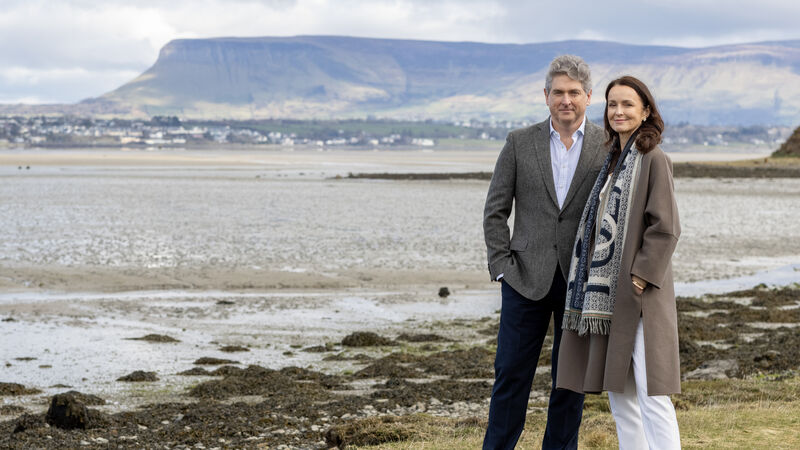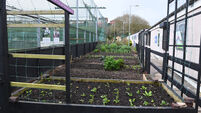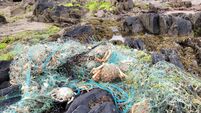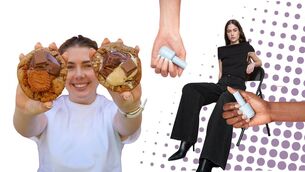Meet the luxury Irish seaweed brand that is conquering the global market

Mark and Kira Walton, founders of Sligo-based company Voya. Picture: Karen Cox
“You can see Slieve League from here,” says Voya head harvester John Devins as he gestures across the Co Sligo beach on which we’re standing. Sure enough, beyond the white horses of the North Atlantic waves, I can see the Donegal cliffs peeping through the horizon’s haze.










